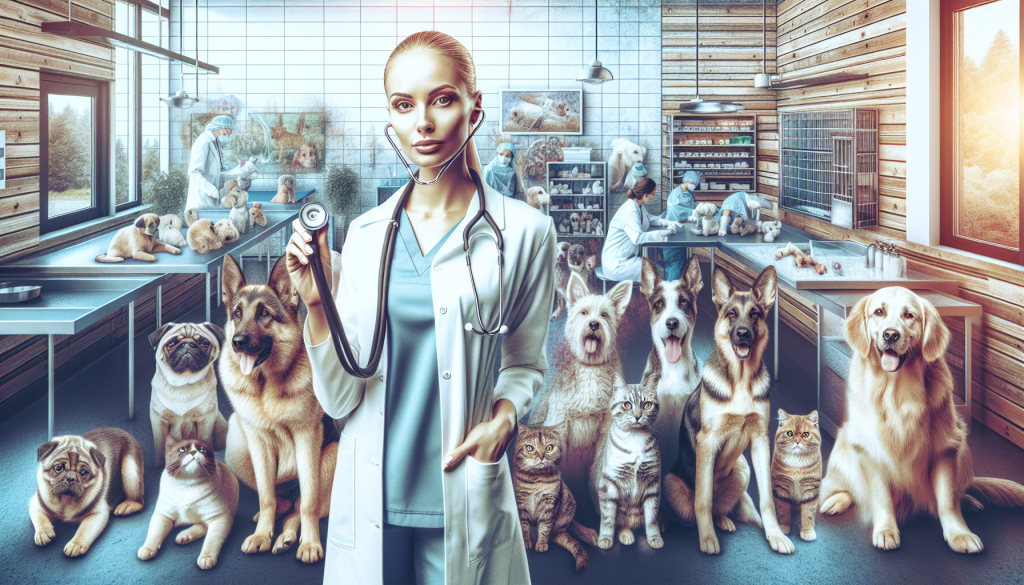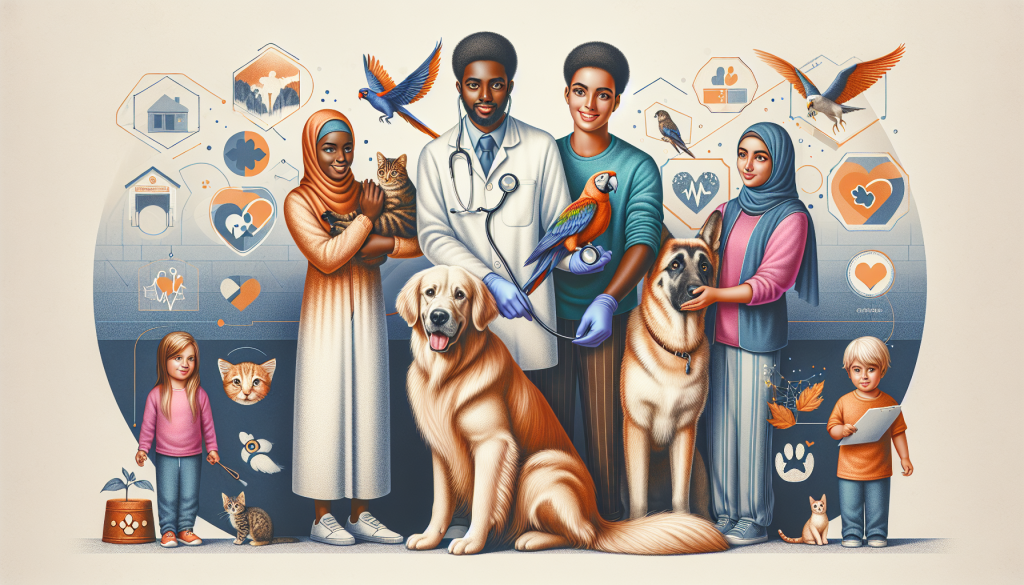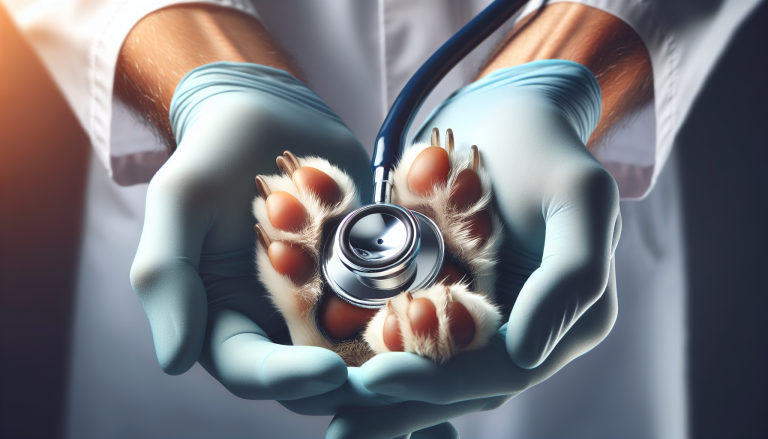Taking your pet to the veterinarian for regular check-ups is crucial for their overall health and well-being. These check-ups allow the veterinarian to assess your pet’s physical condition and detect any potential health issues before they become serious. Not only do these visits ensure that your furry friend receives the necessary vaccinations and preventive care, but they also provide an opportunity for you to address any concerns or questions you may have about your pet’s behavior or diet. By making regular vet check-ups a priority, you are taking an important step in ensuring a long and happy life for your beloved companion.
Table of Contents
TogglePreventive Care
Preventing Health Issues
Taking the necessary steps to prevent health issues is crucial for the overall well-being of your pet. Regular vet check-ups play a vital role in preventing potential health problems. During these visits, your veterinarian will assess your pet’s overall health and provide important recommendations to keep them in optimal condition. By staying proactive and addressing any concerns early on, you can significantly reduce the risk of your pet developing serious health issues.
Vaccinations
Vaccinations are a fundamental aspect of preventive care for your pet. They help protect them from a wide range of potentially life-threatening diseases such as rabies, distemper, and parvovirus. Your vet will develop a vaccination schedule tailored to your pet’s specific needs based on factors such as age, lifestyle, and geographical location. Keeping your pet up to date with their vaccinations is crucial in preventing the spread of these diseases and ensuring their long-term health.
Parasite Control
Parasites such as fleas, ticks, and intestinal worms can cause significant harm to your pet’s health. Regular vet check-ups allow your veterinarian to assess your pet’s risk of parasites and provide the most effective preventive measures. This may include recommendations for flea and tick preventives, regular deworming treatments, and testing for common parasites. By implementing a comprehensive parasite control plan, you can protect your pet from the discomfort and health complications associated with these parasites.
Early Detection and Treatment
Identifying Health Problems
Regular vet check-ups provide an opportunity to identify any potential health problems before they escalate. During these visits, your veterinarian will perform a thorough examination, paying close attention to any changes in your pet’s physical appearance or behavior. Additionally, they may recommend diagnostic tests such as bloodwork, urinalysis, or imaging to further assess your pet’s health. By detecting health problems early on, your vet can provide timely intervention and prevent further complications.
Prompt Treatment
In cases where health issues are detected during routine check-ups, prompt treatment is essential. Your veterinarian will provide a tailored treatment plan based on the specific condition or illness your pet is facing. Timely treatment can help manage and alleviate symptoms, prevent the progression of the disease, and improve your pet’s overall prognosis. By promptly addressing health concerns, your vet plays a crucial role in ensuring your pet’s well-being and quality of life.
Improved Prognosis
Early detection and prompt treatment significantly contribute to improved prognosis for your pet. By identifying health issues in their early stages, your veterinarian can intervene with appropriate therapies that are more likely to be effective. This can lead to a better outcome and increased chances of successful treatment. Regular vet check-ups serve as a proactive approach to your pet’s health, giving them the best possible chance of a healthy and happy life.
Maintaining Optimal Health
Physical Examination
Physical examinations are a cornerstone of regular vet check-ups. Your vet will conduct a comprehensive assessment of your pet’s overall physical health, including their vital signs, body condition, skin and coat, muscles and joints, and more. By performing these thorough examinations, your veterinarian can detect any abnormalities or potential health concerns that may require further investigation or treatment.
Nutritional Assessment
Proper nutrition plays a crucial role in maintaining the overall health and well-being of your pet. During routine check-ups, your veterinarian will assess your pet’s current diet and provide recommendations tailored to their specific needs. Factors such as age, breed, activity level, and any existing health conditions will be taken into consideration. A well-balanced and tailored diet can help prevent obesity, promote optimal growth, and support overall vitality in your pet.
Weight Management
Maintaining a healthy weight is essential for your pet’s overall health and longevity. Obesity can contribute to a wide range of health problems, including joint issues, heart disease, and diabetes. Your veterinarian can assess your pet’s body condition during regular check-ups and provide guidance on weight management strategies if necessary. This may include nutritional adjustments, exercise recommendations, and monitoring progress over time. By maintaining a healthy weight, you can enhance your pet’s quality of life and reduce the risk of obesity-related diseases.
Dental Health
Oral Examination
Dental health is a vital aspect of your pet’s overall well-being. During routine vet check-ups, your veterinarian will perform a thorough oral examination to evaluate the health of your pet’s teeth and gums. They will look for signs of dental disease, such as tartar buildup, gum inflammation, or tooth decay. Detecting dental issues early allows for timely intervention and the prevention of further damage to your pet’s oral health.
Professional Cleaning
Regular professional dental cleanings are an essential part of maintaining your pet’s dental health. Your veterinarian will recommend the appropriate frequency for these cleanings based on your pet’s specific needs. Professional cleanings involve scaling the teeth to remove plaque and tartar, polishing the teeth to create a smooth surface, and assessing for any underlying dental problems. These cleanings help prevent gum disease, tooth loss, and the associated pain and discomfort.
Preventing Dental Problems
Preventing dental problems starts with good oral hygiene at home. Your veterinarian will provide guidance on toothbrushing techniques, dental diets, and dental treats that can help maintain your pet’s oral health. Regular vet check-ups allow your vet to monitor your pet’s dental hygiene routine and identify any areas for improvement. By establishing a proactive approach to dental care, you can prevent dental problems and ensure your pet’s overall health and well-being.
Senior Pet Care
Age-related Health Issues
As your pet enters their senior years, they may become more susceptible to age-related health issues. Common conditions in senior pets include arthritis, dental disease, cancer, and organ dysfunction. Regular vet check-ups become even more important for senior pets as they allow for early detection and management of these age-related issues. By addressing these concerns proactively, your veterinarian can help improve your senior pet’s quality of life and ensure they receive the appropriate support and care.
Specialized Care
Senior pets often require specialized care to address their unique needs. Your veterinarian will tailor their approach to preventive care, vaccination schedules, and diagnostic testing based on your pet’s age and any existing health conditions. They may recommend additional screenings, such as bloodwork or imaging, to monitor your senior pet’s organ function and overall health. By working closely with your veterinarian, you can ensure that your senior pet receives the specialized care they need to age gracefully and comfortably.
Monitoring Chronic Conditions
Senior pets with chronic conditions, such as diabetes or kidney disease, require ongoing monitoring and management. Regular vet check-ups allow your veterinarian to assess your pet’s condition, adjust medications if necessary, and provide guidance on lifestyle modifications that can support your pet’s health. By closely monitoring chronic conditions, your veterinarian can help prevent complications and ensure your senior pet maintains a good quality of life.
Behavioral Assessment
Identifying Behavioral Issues
Behavioral issues can significantly impact your pet’s well-being and the harmony of your household. During regular vet check-ups, your veterinarian will assess your pet’s behavior and identify any signs of potential behavioral issues. They will ask questions about your pet’s behavior at home and may perform specific tests or observations to gather further information. Identifying behavioral issues early allows for timely intervention and appropriate behavior modification strategies.
Addressing Behavioral Concerns
Once behavioral issues are identified, your veterinarian can provide guidance and resources to address these concerns. They may recommend behavior modification techniques, environmental modifications, or even referrals to a veterinary behaviorist if necessary. By taking a proactive approach to behavioral concerns, you can work towards resolving them and ensuring a harmonious relationship with your pet.
Preventing Zoonotic Diseases
Protecting Your Family
Zoonotic diseases are those that can be transmitted between animals and humans. Regular vet check-ups play a crucial role in preventing the spread of zoonotic diseases by ensuring your pet’s health and reducing the risk of transmission to your family members. Your veterinarian will educate you about zoonotic diseases, provide recommendations for preventive measures, and address any concerns you may have regarding potential risks.
Identifying Zoonotic Diseases
Regular vet check-ups also allow for the early detection of zoonotic diseases in your pet. Your veterinarian will screen for common zoonotic diseases and recommend appropriate testing if necessary. Detecting these diseases early not only protects your family but also allows for prompt treatment and a better outcome for your pet.
Ensuring a Long Life
Increased Lifespan
Regular vet check-ups are a key factor in ensuring a long and healthy life for your pet. By staying proactive and addressing any health concerns early on, you can significantly increase your pet’s lifespan. Regular visits to the vet allow for preventive care, early detection of health problems, and prompt treatment, all of which contribute to a longer and happier life for your cherished companion.
Improving Quality of Life
In addition to increasing lifespan, regular vet check-ups also contribute to improving the overall quality of life for your pet. By addressing their physical health, dental health, behavioral concerns, and overall well-being, your veterinarian helps ensure that your pet can enjoy life to the fullest. Regular check-ups allow for proactive care and interventions, ensuring that any potential health issues are identified and managed effectively.
Building a Relationship with Your Vet
Trust and Communication
Regular vet check-ups provide an opportunity to build a strong relationship with your veterinarian. Trust and communication are key elements of this relationship, as they allow for open dialogue about your pet’s needs, concerns, and overall health management. By establishing a relationship built on trust and effective communication, you can work together with your veterinarian to provide the best possible care for your pet.
Personalized Care
By maintaining regular vet check-ups, your pet receives personalized care tailored to their specific needs. Your veterinarian will develop a deep understanding of your pet’s unique characteristics, medical history, and overall health. This personalized approach enables your veterinarian to provide tailored recommendations and interventions, ensuring that your pet receives the individualized care they deserve.
Financial Considerations
Early Intervention is Cost-effective
While regular vet check-ups require an investment of time and money, they can ultimately save you expenses in the long run. Early detection of health issues through routine check-ups allows for timely intervention, which can prevent the development of more serious and costly conditions. By addressing concerns proactively, you can help minimize the financial burden associated with extensive treatments or emergency interventions.
Pet Insurance
Consider investing in pet insurance to help manage the financial aspect of your pet’s healthcare. Pet insurance can provide coverage for routine check-ups, vaccinations, emergency care, and unexpected treatments. It offers peace of mind knowing that you can provide the best possible care for your pet without worrying about the associated costs.
Budget Planning
Regular vet check-ups should be factored into your budget as an essential part of your pet’s overall healthcare. By planning and allocating funds for routine examinations and preventive care, you can ensure that your pet receives the comprehensive care they need to maintain optimal health throughout their life.
In conclusion, regular vet check-ups are of utmost importance for the well-being and longevity of your beloved pet. Preventive care, early detection and treatment, maintaining optimal health, dental health, senior pet care, behavioral assessment, zoonotic disease prevention, ensuring a long life, building a relationship with your vet, and financial considerations are all integral components of these essential visits. By staying proactive, addressing concerns early on, and working closely with your veterinarian, you can provide the best possible care for your pet, ensuring they lead a healthy, happy, and fulfilling life.










